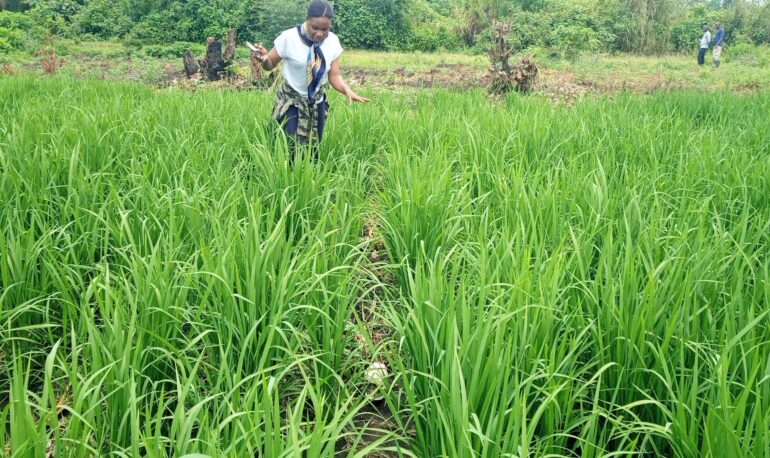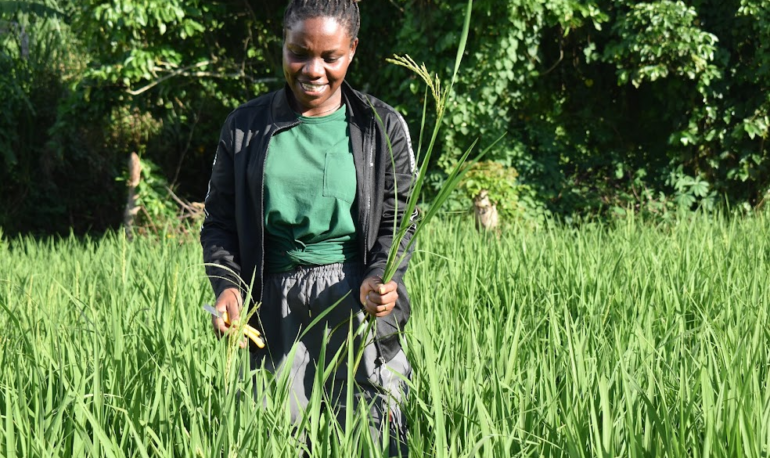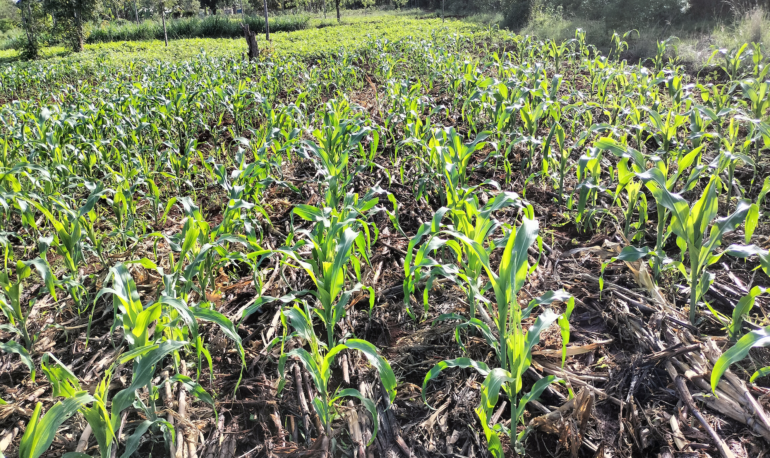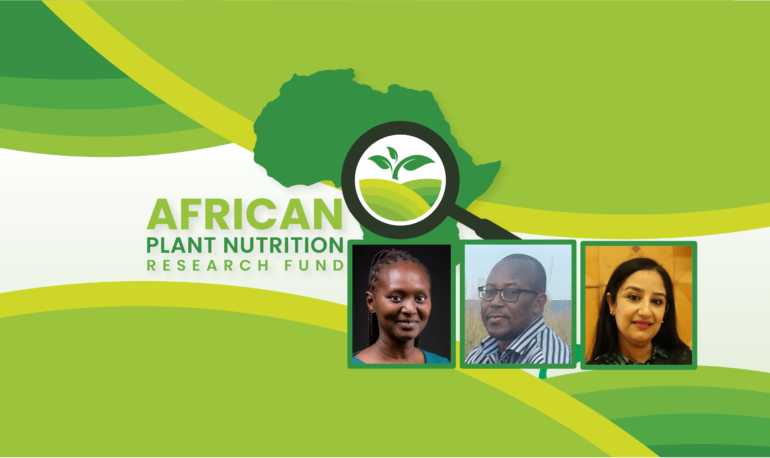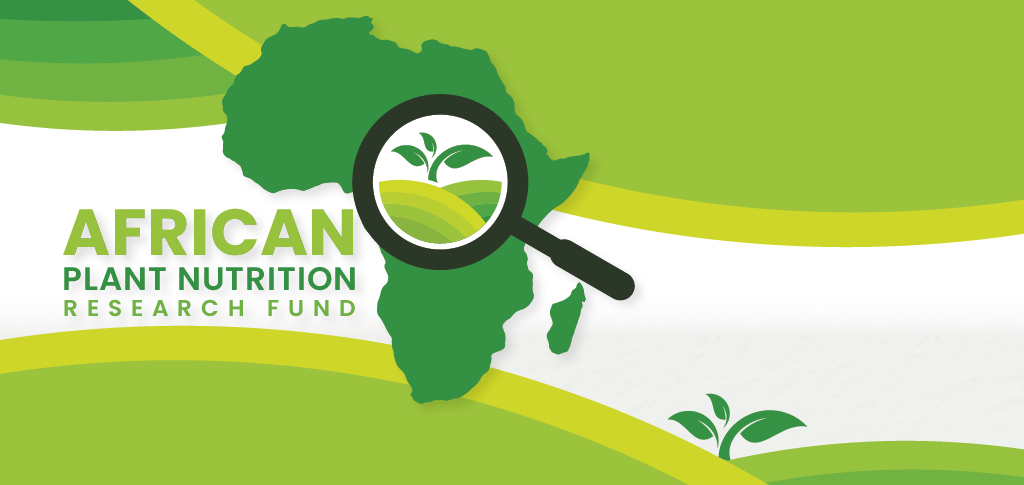
African Plant Nutrition Research Fund
Project Lead

African Plant Nutrition Institute
Implementing Partners

Mohammed VI Polytechnic University (UM6P)
Target Countries
African Continent
Other Targets
Short Description
The aim of the African Plant Nutrition Research Fund is to support nutrient and soil fertility management research directly addressing at least one of the priority funding areas identified within APNI’s strategic research themes.
To be eligible, the lead applicant (Principal Investigator) must be from an African National Agricultural Research and Extension System (NARES) institution or African university. Students are not eligible for this award.
The application is only available on-line at www.apni.net/research-fund-apply
2022 Selections
Description: Organic carbon improves soil fertility, soil structure, soil moisture retention, soil pH, reduces soil acidity and soil health in general. Healthy soils are fundamental for sustainable and improved crop production and livelihood of farming communities. This project will study the contribution of various crop production systems to sequestered soil organic carbon for appropriate land resources management and minimized emission of greenhouse gases.
Leads: Sibaway Mwangoa, Tanzania Agricultural Research Institute-TARI Milingano Centre
Supported by: APNI
Target Crops: –
Target Countries: Tanzania
Timeframe: 2023-2024
Description: Previous research exposed the potential of supplementation of Zn and Fe in increasing rice yields and quality. This project seeks to streamline micro-nutrient fertilization to guide micro-nutrient fertilizer formulations, increase agricultural productivity, and alleviate hidden hunger in line with APNRF themes.
Leads: Nyambilila Amuri, Sokoine University of Agriculture, Morogoro, Tanzania
Supported by: APNI
Target Crops: Maize, Rice
Target Countries: Tanzania
Timeframe: 2023-2024
Description: The project’s goal is to develop satellite image-based models for nitrogen uptake in wheat in Tunisia, which shall be used as the basis for a decision support system for optimizing nitrogen recommendations to wheat farmers. This development will be possible through upscaling of calibration models acquired from data collected by proximal sensing of field trial plots, and plots in wheat fields. The project will encompass both relatively low-cost proximal sensing as well as satellite remote sensing, and development of a workflow of model transfer from field measurements to satellite data. It is envisioned that the working model will be useful also for future projects and other crops.
Leads: Mouna Mechr, National Institute of Field Crops (INGC)
Supported by: APNI
Target Crops: Wheat
Target Countries: Tunisia
Timeframe: 2023-2024
2021 Selections
Description: This project’s objectives are to: evaluate nutrient and water use efficiency under adaptable nutrient, water and agronomic management packages to variable weather and climate change for increased rice production; determine the economic viability of climate smart options for improving rice productivity and mitigating risks and shocks; strengthen the farmer-market institutions for improved efficiency in the production and marketing of rice; and enhance the uptake of adaptable business and agronomic options for increased resilience to climate change and price risks among rice farmers in Uganda.
Lead: Patrick Musinguzi, School of Agricultural Sciences, Makerere University
Supported by: APNI
Target Crops: Rice
Target Countries: Uganda
Timeframe: 2021-2024
Description: This project’s objectives are to: characterize business models that support adoption and scaling of weather-sensitive nutrient management technologies, innovations and management practices; identify and map maize stress patterns; benchmark upper limits for water and nitrogen use efficiency of maize; validate and promote best management practices for soil moisture conservation and N use efficiency; and develop and validate an easy-to-use water and N budget calculator.
Lead: Onesmus Kitonyo, Department of Plant Science and Crop Protection, University of Nairobi
Supported by: APNI
Target Crops: Maize
Target Countries: Kenya
Timeframe: 2021-2024
Description: This project’s objectives are to: determine the optimal compromise between fertilization and deficit irrigation of olive trees; identify critical phenological stages of olive nutrition through analyzing nutrient dynamics under irrigated system; evaluate the impact of the optimal compromise between fertilization and deficit irrigation of olive on the quality and purity parameters of olive oils; determine the most relevant biomarkers linked to water resilience and nutrient uptake efficiency in olive under the effects of climate change; elect a set of genotypes with high drought tolerance and nutrient use efficiency; build comprehensive models based on drone images for monitoring olive tree hydromineral status under deficit irrigation; and improving farmers’ incomes and competitiveness through reducing water and nutrient inputs and/or improving agricultural practices.
Lead: Abdelaziz Bouizgaren, Institut National de la Recherche Agronomique (INRA Maroc)
Supported by: APNI
Target Crops: Olive
Target Countries: Morocco
Timeframe: 2021-2024
Description: This project’s objectives are to: develop site specific crop performance indicators based on soil fertility, crop management including nutrition, existing soil map information, and weather data; assess the feasibility of remotely sensed information technology to characterize crop performance; understand gender-specific opportunities to adopt site-specific fertilizer interventions elaborated through diagnostic surveys; and document a proof-of-concept that structures opportunity for change around clearly articulated business models that explain the details of innovation and identify the options for sustainable scaling-up of interventions.
Co-leads: Edward Yeboah, CSIR-Soil Research Institute; George Ashiagbor, Faculty of Renewable Natural Resources, Kwame Nkrumah University of Science and Technology (FRNR-KNUST)
Supported by: APNI
Target Crops: Maize
Target Countries: Ghana
Timeframe: 2021-2024
Related Links
https://um6p.ma
Related Links
https://um6p.ma


